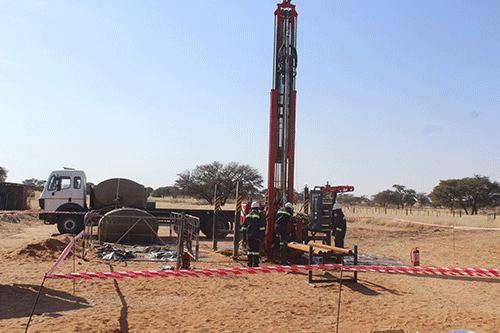The Omaheke region will host a first-of-its-kind Agricultural Food Conference-Expo (Agri-food ConfEX), which is intended on addressing food insecurity in the region, with emphasis on maximising the region’s potential as a formidable food hub for its people.
The event is scheduled for 28-30 July in the region’s main economic centre, Gobabis, and will be staged as a collaboration between the Omaheke Regional Council and the World Food Programme (WFP).
A Confex is generally referred to as an event that combines a conference with elements of an expo for maximum effect.
Launching the event on Thursday, Omaheke governor Pijoo Nganate stressed the region urgently needs to adopt strategies that would see its residents released from the bondage of poverty.
He said Omaheke is reeling under difficult circumstances in the fight against poverty, as urban hunger continues to wipe out any gains made in the sector.
Nganate attributed the rising levels of urban hunger to a high influx of people from the rural areas in search of better opportunities.
Added to this are farm workers, who are relieved of their duties when they turn old.
Such people, he said, end up in one of Gobabis’ informal settlements, where they struggle daily to fend for themselves.
“There is growing recognition that the vision for zero hunger cannot be realised unless urban food insecurity is adequately addressed,” he said.
Nganate added that Omaheke is poised to be a leading example of tackling poverty in urban settings, noting that diversification of agricultural practices has taken centre stage as more inhabitants are venturing into crop production.
The event, which is billed as a unifying platform for both communal and commercial farmers and those in the food provision sector, is expected to accord producers an opportunity to showcase their products and learn from one another on best practices.
Leonie Lubbe, Programme Policy Officer: Malnutrition and Anti-Stunting, said while Namibia has made great strides in its fight against poverty, such gains were wiped out by the onset of Covid-19.
It is, therefore, back to the drawing board, picking up the shattered pieces left by the Covid-19 in its trail to reach millennium development goals on hunger and food security, Lubbe said.
Omaheke chief regional officer Pecka Semba said the region produces enough food among the different farmers.
As such, no person ought to go to bed hungry.
He said a lack of programme coordination and strict monitoring has resulted in the sad state of affairs of urban hunger, which can be reversed if done well.
“We used to be people who cared for each other. If one family cooks today, they would send plates of food to other families, especially the less fortunate.
“Tomorrow, another family will do the same. That is how our parents beat hunger during the day. Let’s care more for each other; it’s possible to eradicate hunger,” he said.
– tjatindi@gmail.com



